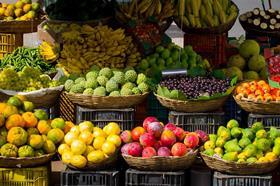
Rabobank, Temasek and PricewaterhouseCoopers (PwC) have released a new report which estimates US$800bn worth of investment is required to grow Asia’s food and agriculture industry to a sustainable size.
Launched at Asia-Pacific Agri-Food Innovation Week in Singapore, the report said in order for Asia to feed itself over the next 10 years, around US$550bn of investment will be necessary in the areas of sustainability, safety, health and convenience.
Additionally, US$250bn is needed to drive increased quantities of food to feed Asia’s growing population.
Richard Skinner, Asia-pacific deals strategy and operations leader of PwC Singapore, said the approach to developing agriculture in the region had to change.
“Asia faces a crossroads. On the one hand, current lack of investment, and the slow development and use of technology across the food and agriculture supply chain has held us back and left us dependent on others,” said Skinner.
“On the other, we can reverse that by being at the forefront of technological innovation, disruption and use, transforming the industry and bringing benefits to the consumer, returns to corporates and investors and value-adding jobs across Asia.”
The report identifies controlled environment farming and reducing food waste as two areas in the fresh produce industry that are primed for investment.
“For import-dependent countries with a lack of arable land this (controlled environment farming) will make an important contribution to food security. This is complemented by a number of sustainability benefits,” the report said.
The report suggested part of the solution to the problem of food waste lies in innovation and improving efficiency across the supply chain, particularly in Asia’s cold chain capacity.
“With the boom of fresh food e-commerce, more cold chain capacity is required for both agriculture and fresh products. While big companies are expanding and building sophisticated cold chain storage and logistics, simple cold chain is needed for smallholder farmers,” the report noted.



